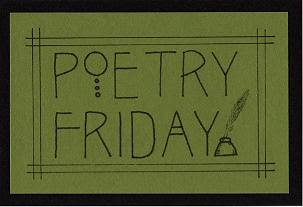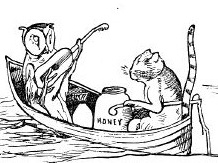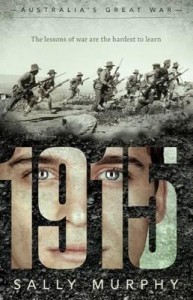It’s Poetry Friday and I am thinking about metapoetry. Did you know that metapoetry is a fancy name for poems about poetry or about trying to write poetry?
Anyway, the reason I am thinking about metapoetry is because my fabulous poet friend Rebecca wrote a fabulous metapoem. At our shared blog, Poetrytag, I gave Rebecca two words and challenged her to put them into a poem (that is how Poetrytag works).
The words I gave her, were: birth and together. Her response blew me away. You can read it here.
The image of a an idea being cocooned and cosseted like a baby is just so fabulous..
Of course, this got me thinking about other metapoems. Another favourite of mine is this Billy Collins poem, which expresses a quiet dismay over the way poems are over-analysed:
Lastly, I remembered a poem about poetry as an opening blossom, and found it after a bit of searching. It is Naoshi Koriyama’s Unfolding Bud which I think echoes what Collins’ is saying – that a poem is something to be treasured, held up to the light, watch unfold, rather than something to be nailed down. You can read “Unfolding Bud” by Naoshi Koriyama on Genius.
Why do poets write about poetry? Because we love poetry – and writing about something you love is pleasurable, enriching.
In the light of the genius above, I almost didn’t share any of my own poetry here, but then I remembered that my character Pearl is also a metapoet. She loves poetry, but isn’t enjoying the poetry unit they are doing at school, because her teacher wants all their poetry to rhyme, so Pearl writes this limerick:
There was a young lady called Pearl
Who was not a rhyming type girl
She said “I’ve no time
For poems that rhyme”
Which made her poor teacher go hurl.
Do you have a favourite poem about poetry?
The Poetry Friday roundup this week will be over at Refections on the Teche. Enjoy!




